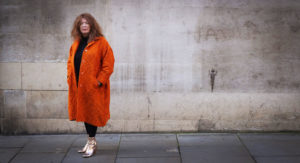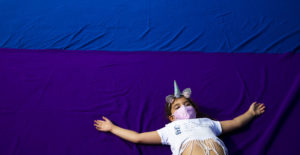What is a woman? Hoping he might be able to answer this vexatious question, the New Statesman turned to Richard Dawkins. In the resulting piece, the biologist expresses sympathy with those with gender dysphoria, but is unequivocal that a woman “is an adult human female, free of Y chromosomes”. Sex, he writes, is “binary”.
In the interests of “balance”, an opposing view was deemed necessary. The counter-argument, published last week, was made by Jacqueline Rose, a professor at the Birkbeck Institute for the Humanities. According to Dawkins, her response does not make any “coherent sense”, which he suggests may be a badge of honour among postmodernists.
I am a long-time admirer of Rose. Her insights on psychoanalysis have suffused my own writing and I loved her book Mothers, which, as it happens, I reviewed in the New Statesman. I described her as “one of our very best cultural critics”.
Yet even I was surprised at how poor her recent article was. I understand that, unless you are Zizek, you have to sign up to a lot of nonsense if you are to survive on the international academic circuit. Unlike Dawkins, though, I am weirdly steeped in postmodern theory. In the Eighties, I got an interview with Baudrillard and tried to sell it to The Guardian, but they had never heard of him.
From early on, I could see how much of this fashionable theory — rooted in a rejection of “grand narratives” about the truth — does not accommodate feminist politics. When I was teaching American students about postmodernism and Judith Butler, it became even more apparent that much of her argument was a response to Marxism; that postmodernism was born of the failure of revolutionary politics.
But there were good bits. And the Rose article reminds me strongly of something I wrote in 1988: “If the whole question of power cannot be tackled, it is because these new hysterics with their male bodies and optional female subjectivities cannot speak of a desiring subject who is actually a flesh and blood woman.” I was talking here about male theorists, rather than trans people. But I return to it in an attempt to understand how, in a call for “generosity”, Rose has written a piece that is so completely dismissive of women, our concerns, rights, bodies and fears.
She begins by claiming that a “central goal of feminism is to repudiate the idea of womanhood”. Is it? What is womanhood if there is no such thing as a woman? Does she mean “femininity”?
On the threat of sexual violence, she suggests that it is “the category of women as much as the safety of women that needs protection”. That category, she thinks, should include women who were once men. Let’s take this idea for a walk, shall we? Out of the academy and to Iran and Afghanistan, to places where women die in menstrual huts or undergo FGM, where women-only spaces are compelled. She complains that “the idea of female” is “some kind of primordial condition… as if it were the bedrock of all the limitations to follow”. She’s actually right here: this is the unfortunate reality in many parts of the world.
Of course, she uses the de Beauvoir quote — “One is not a woman, one becomes one” — but, predictably, chooses to ignore the rest of it: “No biological, psychological, or economic destiny defines the figure that the human female acquires in society; it is civilization as a whole that develops this product, intermediate between female and eunuch, which one calls feminine.” The second part of the quotation is key. The construction of gender is social and there is a difference between being female (sex) and femininity (gender) which is learnt.
Rose’s preference for referring to “females” as opposed to women, she says, is because Andrea Long Chu argues that “female” was developed in the 19th century as a way of referring to black slaves. As a result, it is “historically naive and racially blind” to assume it is a “neutral biological category”. Woah!
“Female” was in common usage long before the 19th century and I think Rose does Long Chu down here. Long Chu is a controversial, often witty, trans author who starts her book Females with: “Everyone is female, and everyone hates it.” For Long Chu, a female identity is one of self-negation and fuckable porn-addled passivity, which is precisely why she transitioned. If the answer to “What is a woman?” is this person, then the majority of the population — women — are tragic failures. Perhaps we are, but at least I know that male babies are not born “with spermatozoa”, as Rose asserts.
Rose goes on to argue that the act of transitioning challenges a binary which “reinforces the most regressive of gender stereotypes”. For her, it is an “imaginative leap”. Others might call it a fiction and listen to the accounts of detransitioners who can never experience parenthood or sexual pleasure. Others might say they are being sold a fantasy, that the sexed body has limitations whatever the imagination says, and that cynical drug companies and surgeons are cashing in on this.
Still, Rose insists there is no bedrock on which “sexual differentiation can securely ground itself”. Perhaps she has not read Dawkins or perhaps she knows more about biology than him. I couldn’t possibly say, but she goes into the familiar refrain that because some women don’t have a uterus, biology cannot be the gatekeeper of what she would call “femaleness”. This is true, but every one of us, however sexually interesting we may be, was born from someone who did have a uterus. There is no way of escaping this.
Transwomen, she says, have “a feeling that biology and a core, lived, sexual identity have been woefully misaligned”. What, pray, is “a core, lived sexual identity”? Is it a soul? Is it an orientation? Is it changeable? The issue with this Butlerian perception of gender is that, if it is nothing but performative, why is anyone compelled to repeat the performance repeatedly and permanently?
The dissonance between who you feel yourself to be and a sexed body is dysphoria, and I don’t know a single feminist who is not sympathetic to those who suffer from it. It’s just that, on the whole, we’re more worried about distressed, often gay, teenagers doing it.
The goal of transition is to simulate femininity, not femaleness because it cannot be done. The liberatory aspect of this, which Rose refers to as “discarding the straitjacket of masculinity”, is actually done by many men without them claiming to be women. But Rose doesn’t address the attendant power grab of women’s spaces and language. Instead, up comes Stuart Hall and his important work concerning moral panics in the Seventies, with a focus on “muggers” and young black men.
Trans people, she is right to say, have become political footballs when we should be thinking about other things. Yet no other “civil rights” movement has had the dominant group identify into the oppressed group and then tried to take away their rights. Rose doesn’t dirty herself with such issues.
“‘Reality’ for feminism”, she argues, is something that has to be negotiated, and to dictate on this matter is patriarchal. Rose, you have to understand, is coming from a place where discourse always trumps objective reality. Postmodern theory depends on us seeing ourselves as formed only in and through language. Meaning is never settled; it is always contested. This is a fine and interesting philosophical argument, but as a politics it stinks. Postmodernism is patriarchy in drag.
What is a woman? “In the end,” we’re told, “it is a matter of generosity and freedom.” Well yes, that will go down well with the Taliban. Where is the generosity towards women who have lost jobs and reputations because of this “debate”? Where is the freedom for women to define themselves? If oppression is not rooted in biology, where does it come from exactly?
One is not born a woman but becomes one. And then one becomes an angry woman — not because we are gatekeeping an essentialist position, but because we cannot individually identify our way out of trouble. Feminism is a collective struggle or it is merely cosmetic.
What is a woman? I suspect Rose knows. She just also knows which side her bread is buttered on: the side that holds the power in academia, publishing and literary circles. They have stopped dreaming big and kid themselves they are radical in their safe spaces. Yet most women don’t get to choose our safe spaces: we are too mean and unsophisticated. Thankfully, unlike Rose, some of us remain unkind, unpersuaded, unbound.
Disclaimer
Some of the posts we share are controversial and we do not necessarily agree with them in the whole extend. Sometimes we agree with the content or part of it but we do not agree with the narration or language. Nevertheless we find them somehow interesting, valuable and/or informative or we share them, because we strongly believe in freedom of speech, free press and journalism. We strongly encourage you to have a critical approach to all the content, do your own research and analysis to build your own opinion.
We would be glad to have your feedback.
Source: UnHerd Read the original article here: https://unherd.com/



